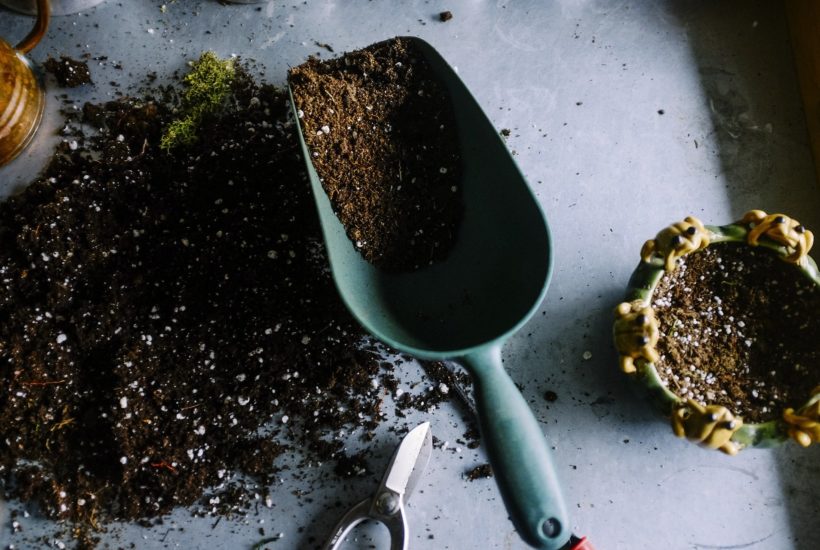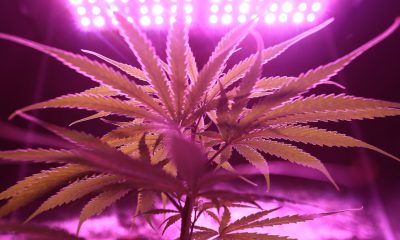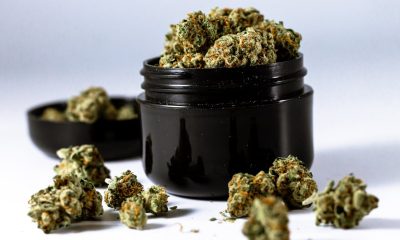Cannabis
Will Brazil allow companies to cultivate cannabis for medical purposes?
In Brazil, health is a fundamental right granted by the Brazilian Universal Health System (SUS) protected by the Constitution of 1988. Sao Paulo’s government spent about $2 million for a cannabis-based medicine to treat epilepsy, chronic pain, Parkinson’s disease and infantile cerebral palsy, among others, after 201 patients went to court to obtain the medication.

The Chairman of Brazil’s Committee on Agriculture, Mr. Fausto Pinato, congratulated the members of the committee on discussing the issue. “It is up to the Brazilian Parliament to listen to all sectors and segments. It’s not just about discussing legality, it’s about discussing science. It is necessary to study all the contexts of legislation, inspection, respect the contrary opinion, but the fact is that we can not fail to debate,” he said.
The hemp.im cannabis news app provides the latest happenings in the cannabis sector. The app curates cannabis news from across the world and distills it to 400 characters or less, helping you stay informed no matter where you are or how much time you have.
Medical cannabis demand
Researcher Roberto Fontes Vieira explained to lawmakers that with the growing demand for medical cannabis, there is a need for robust and reliable analytical tests to ensure consumer safety. Vieira addressed the use of hemp, a raw material extracted from a plant that has been used in several countries for medicinal purposes, in the manufacture of various types of products, including food, beverages, and nutritional supplements.
“Brazil has already been a producer of hemp in Maranhão, introduced in the country in the 19th century for the production of fiber. Besides medicinal use, it is a plant used in multiple sectors such as in the manufacture of oils, seeds, and cosmetics. Embrapa has specialists in medicinal plants that can research new uses for the hemp plant, in the case of approval of the law,” he explained.
Important quality assurance
Vieira highlighted the importance of the industry setting a standard for quality assurance. “There are important works in the world on the subject and it is necessary to define what kind of materials will be produced in Brazil,” he said. Regarding the production of oils, he emphasized that it is necessary to develop clear and standardized analytical methods so that they can be compared to what is being researched. It is very important to consider the analysis of cannabinoids and other substances, such as pesticide residues, contamination by heavy materials, contamination in drying processes, because it is a plant that will be used for medicinal purposes.
In Brazil, there is no scientific research on the product, unlike Israel and Canada, which maintain studies in advanced stages. “In order to carry out studies, it is necessary to have legal authorizations, such as the release for the transit of material. There are several factors that need to be regulated,” said Vieira, pointing out that the cultivation should occur in appropriate greenhouses, avoiding decentralized production to ensure non-contamination.
Cannabis has its origin in Asia and today there are few seed banks. The largest are located in Russia and Germany and are difficult to access. “It is necessary to produce genetic material, evaluate it and guarantee the quality of production by the companies. It’s a long way to have the ideal quality crop for a plant that will be used as medicine. Therefore, when it comes to health it is necessary to be careful,” said the Embrapa researcher.
Demands of agricultural defense
Virginia Arantes, general coordinator of Seeds, Seedlings and Cultivation Protection of the Agricultural Defense Secretariat of the Ministry of Agriculture (MAPA), pointed out that due to the possibility of a decision favorable to the release of the plant both for import and for cultivation for medicinal purposes, the MAPA would be prepared to meet the demands from the point of view of agricultural defense. “These are laws that already exist and are consolidated and apply to any plant species, so there would be no need for regulatory changes under the Ministry of Agriculture,” she said.
The public hearing was attended by representatives of the General Coordination for Drug Repression of the Federal Police; the Secretariat of Science and Technology and Strategic Inputs of the Ministry of Health; the Brazilian Bar Association (OAB Nacional); the Federal Council of Engineering and Agronomy; researchers from the University of Viçosa and Indeov Medicinal Cannabis and Verdemed – a Canadian-based pharmaceutical company responsible for the formulation of cannabinoid-based products.
Cannabis medical prescription
Since 2015, Anvisa has authorized the medical prescription of Cannabis. The difficulty lies in obtaining the product. With commercialization prohibited in Brazil, medicines must be imported. With a prescription, the patient must sign a disclaimer and wait for Anvisa’s authorization. Importation by companies for distribution in Brazil is forbidden.
The authorization is granted individually for each patient. Cannabis has been used for patients with epilepsy, chronic pain, Alzheimer’s, and multiple sclerosis. Substances such as cannabidiol (CBD) and tetrahydrocannabinol (THC) already have recognized anxiolytic, antidepressant and anti-inflammatory effects.
__
(Featured image by Free-Photos via Pixabay)
DISCLAIMER: This article was written by a third party contributor and does not reflect the opinion of Born2Invest, its management, staff or its associates. Please review our disclaimer for more information.
This article may include forward-looking statements. These forward-looking statements generally are identified by the words “believe,” “project,” “estimate,” “become,” “plan,” “will,” and similar expressions. These forward-looking statements involve known and unknown risks as well as uncertainties, including those discussed in the following cautionary statements and elsewhere in this article and on this site. Although the Company may believe that its expectations are based on reasonable assumptions, the actual results that the Company may achieve may differ materially from any forward-looking statements, which reflect the opinions of the management of the Company only as of the date hereof. Additionally, please make sure to read these important disclosures.
First published in Smoke Buddies, a third-party contributor translated and adapted the article from the original. In case of discrepancy, the original will prevail.
Although we made reasonable efforts to provide accurate translations, some parts may be incorrect. Born2Invest assumes no responsibility for errors, omissions or ambiguities in the translations provided on this website. Any person or entity relying on translated content does so at their own risk. Born2Invest is not responsible for losses caused by such reliance on the accuracy or reliability of translated information. If you wish to report an error or inaccuracy in the translation, we encourage you to contact us.

-

 Impact Investing2 weeks ago
Impact Investing2 weeks agoEU Eases CO2 Tax Burden on SMEs with Revised CBAM Rules
-

 Fintech14 hours ago
Fintech14 hours agoRobinhood Expands to Europe with Tokenized Stocks and Perpetual Futures
-

 Business1 week ago
Business1 week agoAmerica’s Debt Spiral: A $67 Trillion Reckoning Looms by 2035
-

 Crowdfunding5 days ago
Crowdfunding5 days agoTasty Life Raises €700,000 to Expand Pedol Brand and Launch Food-Tech Innovation
























